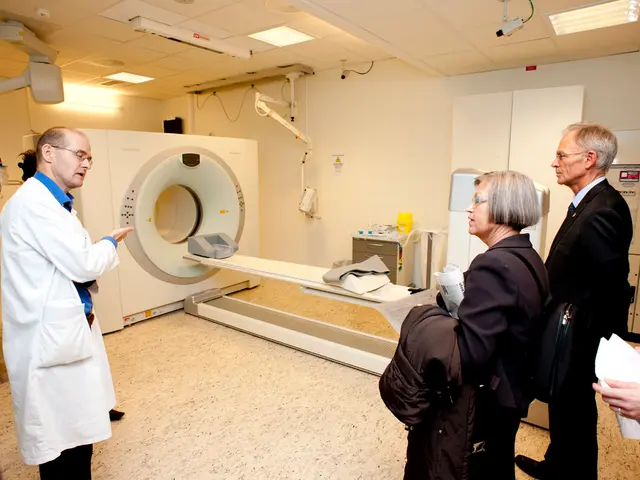Controversy over organ donation: should donation be an opt-in or opt-out process?
A global analysis of organ donation policies reveals the debates surrounding opt-in and opt-out systems. Here's a gist of what's at stake:
Opt-in donation systems require individuals to proactively sign up to donate their organs after death. Essentially, it's all about personal choice. However, this approach can lead to lower donation rates due to factors like procrastination, lack of awareness, or a simple disinclination to take action [1].
On the other hand, in an opt-out system, organ donation is automatic, unless someone explicitly opts out. This approach leads to higher donation rates, as it relies on the default principle, with people being more likely to maintain the status quo than to actively opt out [2][3].
Researchers from the UK, analyzing organ donation protocols in 48 countries spanning 13 years, discovered some intriguing insights. Opt-out countries, on average, had a higher number of kidneys donated, the most sought-after organ in transplant lists [4]. They also saw a greater overall number of organ transplants. However, the opt-in method surprisingly led to higher rates of kidney donations from living donors [4].
Prof. Eamonn Ferguson, the study's lead author, emphasizes the influence of policy on living donation rates as a novel finding [4]. Yet, the study had its limitations, as it didn't distinguish between different degrees of opt-out legislation and didn't account for other factors affecting organ donation [4].
Looking ahead, the researchers advocate for making international organ donation data publicly available to strengthen their findings, and for future studies to delve deep into individuals' beliefs, wishes, and attitudes regarding organ donation [4].
It's worth noting that countries adopting opt-out systems still face organ donor shortages, suggesting a more complex Solution. Changing the system entirely might not be the answer. Instead, refining consent legislation, or even implementing aspects of the "Spanish Model," which boasts the world's highest organ donation rate, could be potential strategies to boost donor rates [4].
The Spanish Model is impressive due to its transplant coordination network and improved public information on organ donation [4]. Some even propose that farming animal organs for human transplants could be a solution to the organ shortage. But is it ethical? Is it feasible? Is it the answer, or should we be looking at policy reforms? These are questions worth pondering over.
Written by James McIntosh
Sources:
- "Why Organ Donation Rates Are Low," Propublica, https://www.propublica.org/article/why-organ-donation-rates-are-low
- "Opt-In vs. Opt-Out Organ Donation: Which One Works Best?" National Kidney Foundation, https://www.kidney.org/news/blog/2021/April/opt-in-vs-opt-out-organ-donation-which-one-works-best
- "Do/Don't Regret: Pros and Cons of Organ Donation," Harvard Health Blog, https://www.health.harvard.edu/staying-healthy/do-don't-regret-pros-and-cons-of-organ-donation
- "Opt-in vs. Opt-out: The Effect of Consent Legislation on Deceased Organ Donation and Transplant Rates," BMC Medicine, https://bmcmedicine.biomedcentral.com/articles/10.1186/s12916-022-01999-5
- In the context of organ donation policies, Paxlovid, a medication, doesn't have a direct relation.
- The organ transplant process is influenced by various factors, such as medical-conditions, chronic-diseases, and chronic-kidney-disease, among others.
- Retargeting strategies might be used in health-and-wellness campaigns to inform people about organ donation policies and medical-conditions.
- The science of organ donation and transplantation has made significant strides, but there are still challenges related to public consent and chronic-kidney-disease.
- Science and policy-and-legislation must work together to address the organ shortage and improve organ donation rates, especially in the context of chronic-kidney-disease.
- Nutrition plays a crucial role in maintaining eye-health, skin-conditions, and overall health-and-wellness, but it's essential to consider these factors when discussing organ donation and transplantation.
- CBD, a compound often used in wellness products, hasn't been directly linked to organ donation policies or medical-conditions, but its impact on individual health could potentially affect attitudes towards organ donation.
- The debate over opt-in and opt-out organ donation systems extends beyond politics into general-news, influencing health-and-wellness discussions and therapies-and-treatments.
- The Spanish Model of organ donation, known for its high rates, offers lessons for countries seeking to improve their donation rates, but ethical and feasibility questions remain about the use of animal organs for human transplants.
- As the conversation on organ donation policies continues, it's crucial to keep in mind the broader context of respiratory-conditions, medical-conditions, and health-and-wellness, and to strive for policies that best serve the needs of society.







